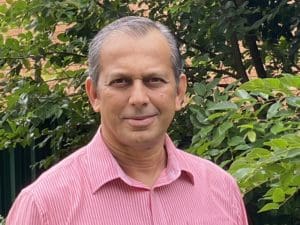Dispute System Design and Traditional Conflict Resolution. Member Spotlight: Nicholas Sadhu
Nicholas Sadhu has almost 25 years of experience as a lawyer and mediator. Born and raised in Fiji, he now lives in Sydney, Australia, and works as a Dispute Resolution Director in the Australian Taxation Office. A nationally accredited mediator in Australia, Nicholas is also passionate about Dispute System Design (DSD). DSD incorporates conflict management systems, processes, and mechanisms for the prevention, management, and resolution of conflicts and disputes. Developing DSD can enable organizations to consider and decide what is the most appropriate mechanism to adopt, such as early engagement, facilitated discussion, mediation, or even litigation, to manage and resolve conflicts.
DSD
 Nicholas believes leaders and policymakers should take into consideration DSD and dispute resolution mechanisms for corporate as well as multi-stakeholder social and community issues, for example, climate and environmental-related disputes. This “will enable parties to have conversations early and start working on adopting the appropriate mechanisms to manage and resolve the dispute before it begins to develop into a positional dispute. This can save time and costs for all, especially if there are multi-stakeholders involved.” Having a DSD can guide the parties through the steps to consider the most appropriate dispute resolution option. Nicholas sees “nothing wrong with going down the path of litigation as long as you have explored all the other options first”. Nicholas sees MBBI and the MBB Oceania Regional Group that he is involved with, as organizations that can support communities and institutions in the region in creating awareness about the benefits of DSD.
Nicholas believes leaders and policymakers should take into consideration DSD and dispute resolution mechanisms for corporate as well as multi-stakeholder social and community issues, for example, climate and environmental-related disputes. This “will enable parties to have conversations early and start working on adopting the appropriate mechanisms to manage and resolve the dispute before it begins to develop into a positional dispute. This can save time and costs for all, especially if there are multi-stakeholders involved.” Having a DSD can guide the parties through the steps to consider the most appropriate dispute resolution option. Nicholas sees “nothing wrong with going down the path of litigation as long as you have explored all the other options first”. Nicholas sees MBBI and the MBB Oceania Regional Group that he is involved with, as organizations that can support communities and institutions in the region in creating awareness about the benefits of DSD.
Fiji and cultural depth to conflict resolution
Nicholas grew up in Fiji, a multi-cultural and diverse country. He is familiar with the social and cultural norms, values, practices, and methods of traditional forms of dispute resolution in Fiji and the Pacific Region. Nicholas believes “that elements of the different forms of dispute resolution, including the traditional forms of consensus building and dialogue based on the concept of talanoa, and the Western mediation model, can be integrated when addressing disputes, particularly in relation to community, environmental and climate-related issues.”
A unique path to mediation
Nicholas’s career as a mediator and lawyer came much later in his working life. Having started his career as a tradesman, then a flight attendant, and later as a marketing representative traveling across the Pacific, gave him the opportunity to work and interact with a diverse range of people and communities.
It was his travels through the Pacific Islands where Nicholas says, “I learned the practice and concept of culture in negotiation and conflict management and resolution.” As Nicholas points out, often what matters to people in the region, even in business disputes, is not necessarily the financial aspect. “What is more important to them is respect, harmony and relationship and the multi-layers that form that relationship.” While the various islands in the Pacific have developed their own way of engaging in and resolving disputes, Nicholas acknowledges that “respect and harmony remain the common factor in addressing disputes.”
Conclusion
These experiences generated an interest in conflict management and dispute resolution for Nicholas which led him to complete his Masters in Dispute Resolution from the University of New South Wales in Sydney. He also recently completed the Climate Reality Leadership training offered by Al Gore’s Climate Reality Project and the environmental mediation training with MBBI. Nicholas joined Mediators Beyond Borders International (MBBI) and its Climate Change Policy Project team in 2019, and together with others at MBBI’s 2019 Congress in Bali established the region group: Mediators Beyond Borders Oceania.
Article by Lizzy Nestor, MBBI Writer
